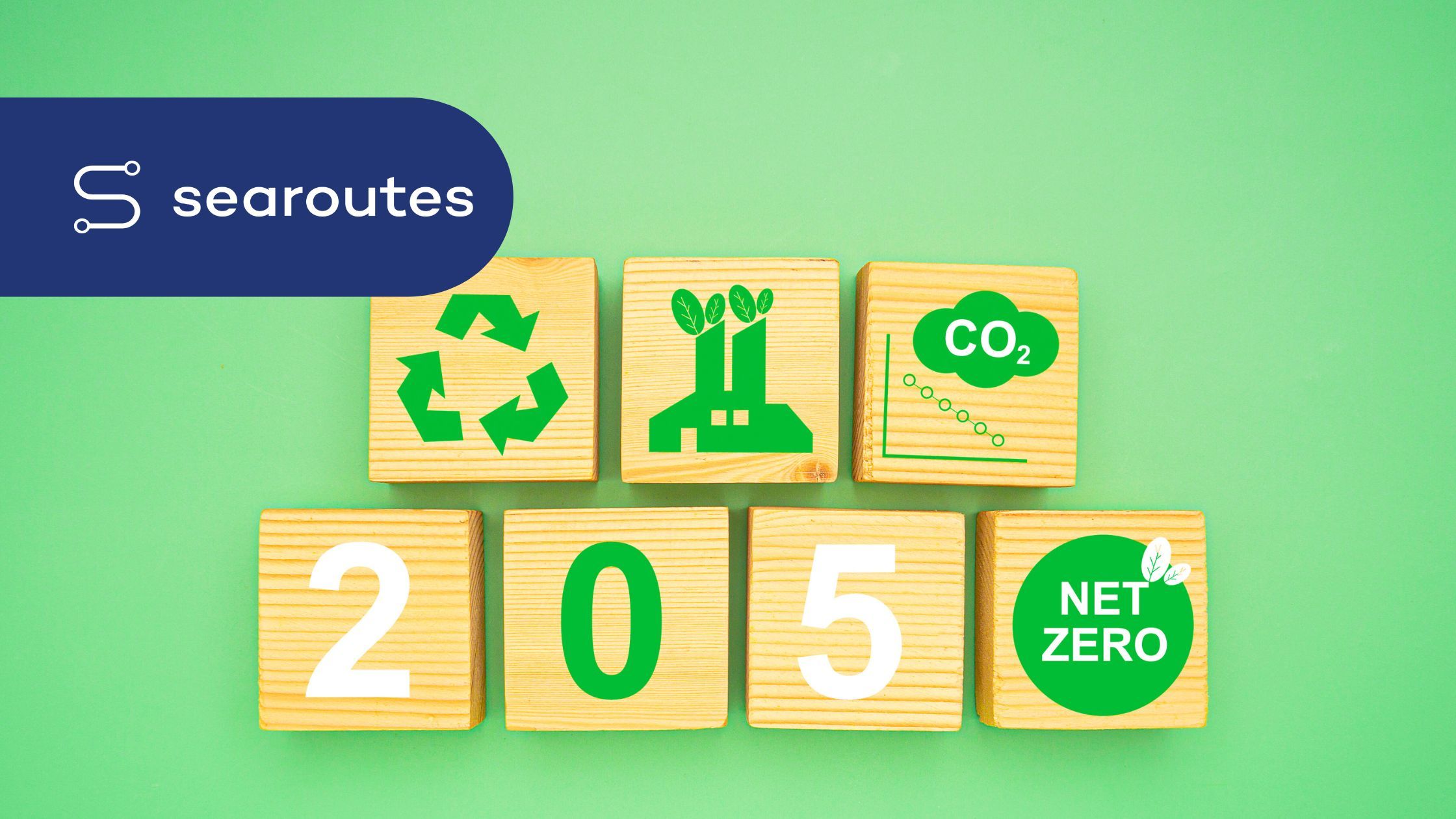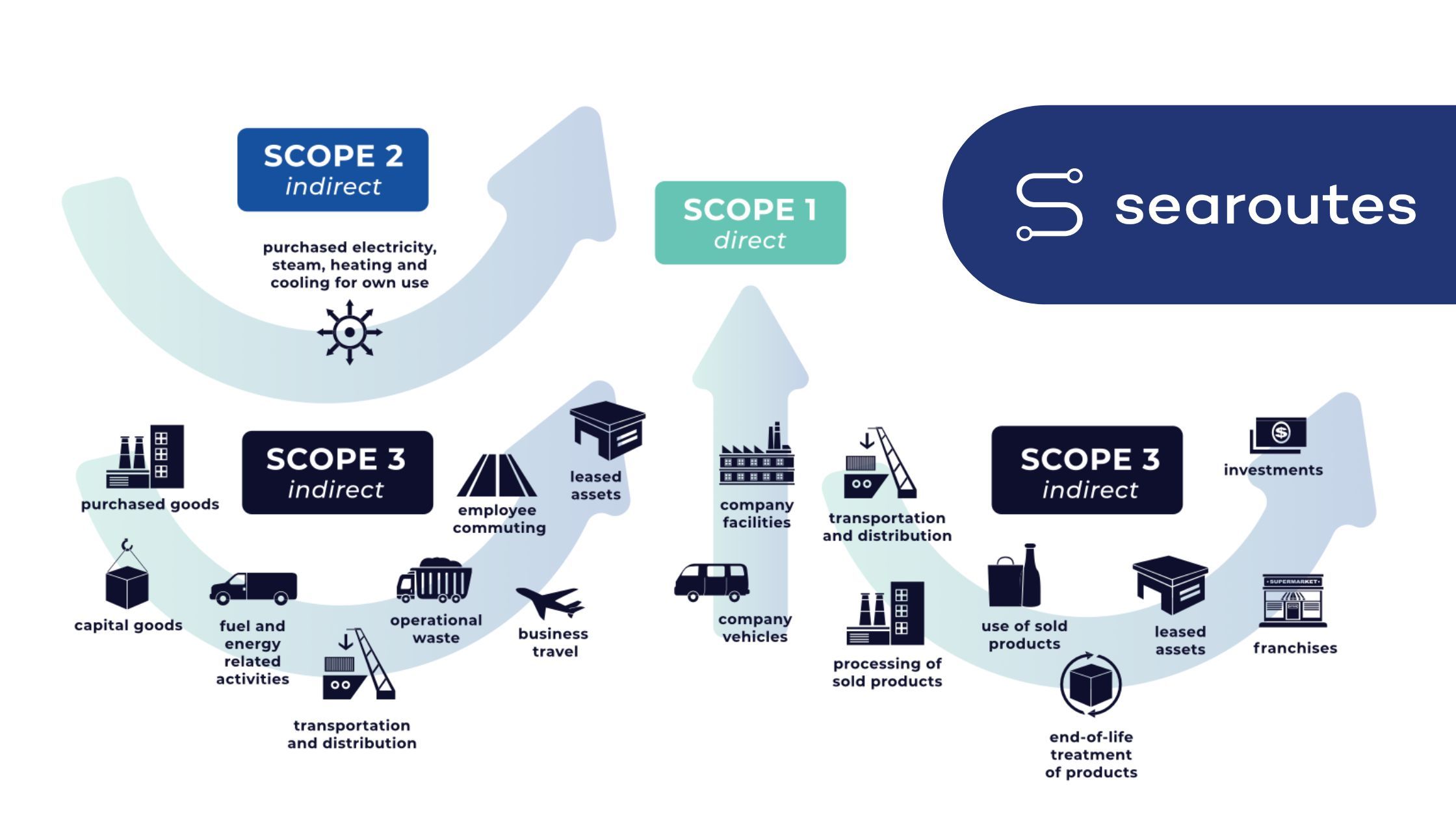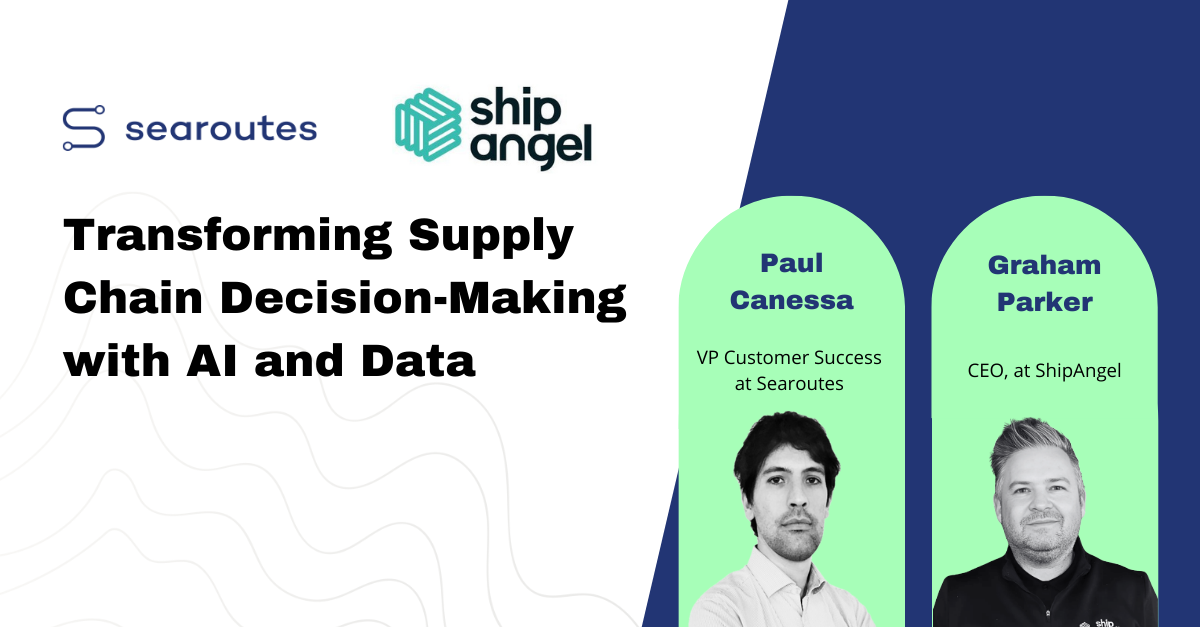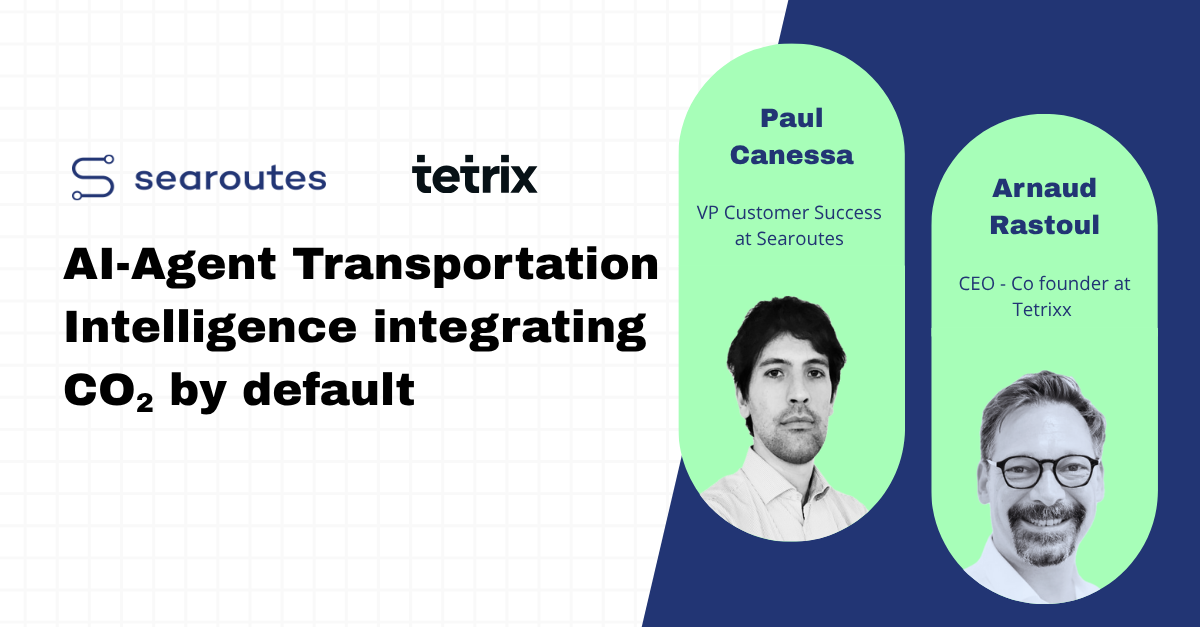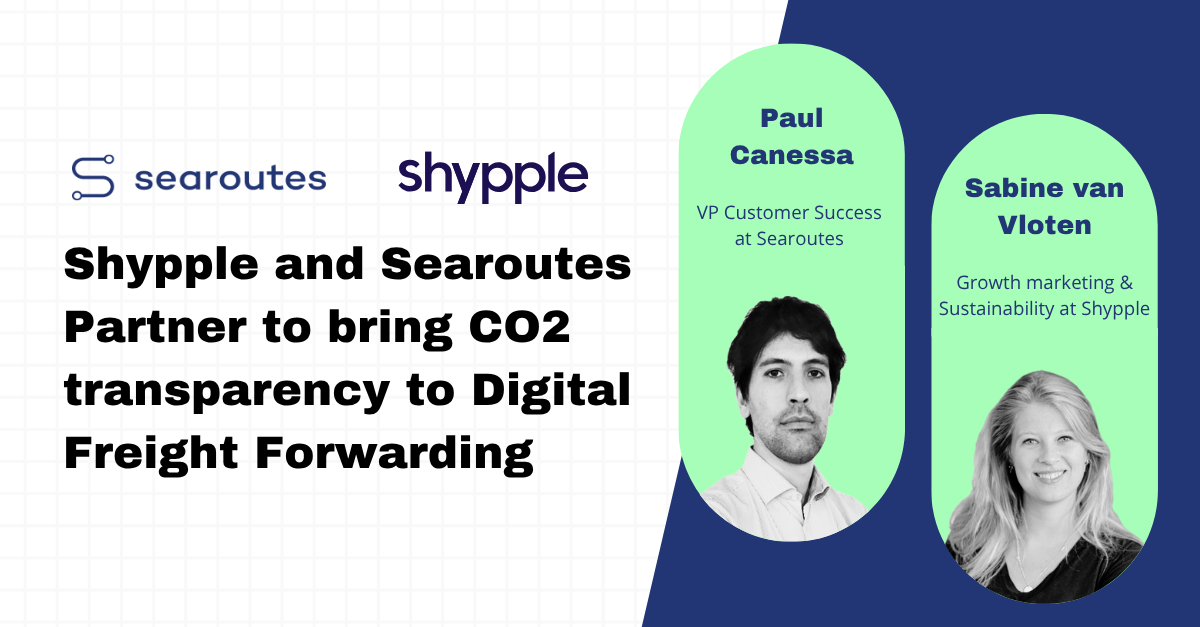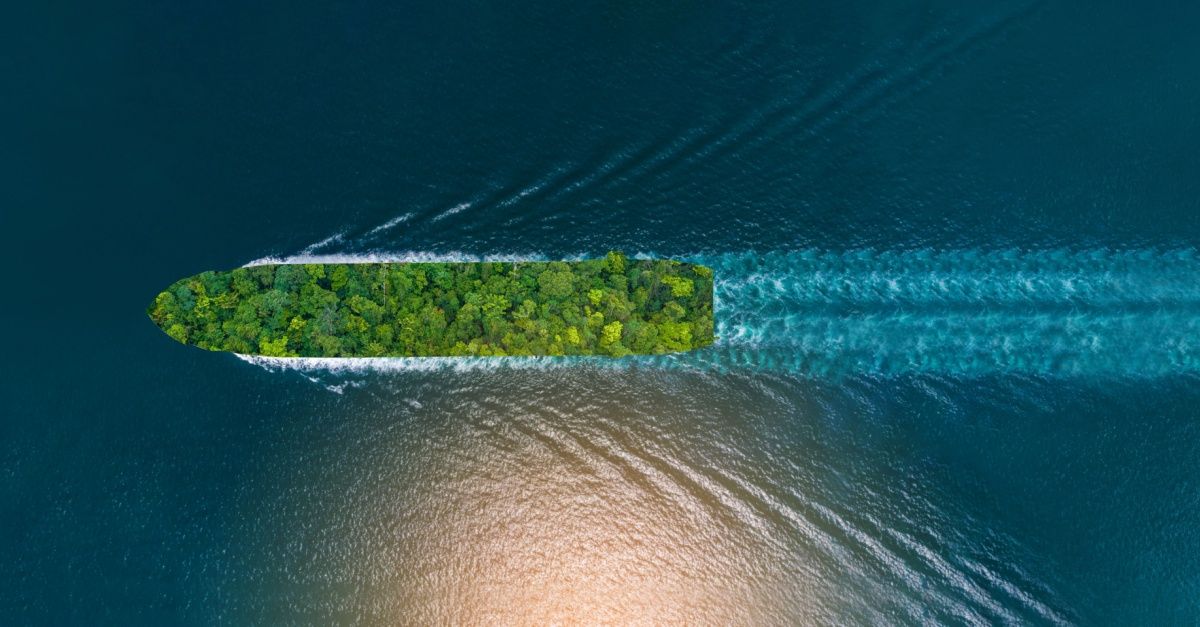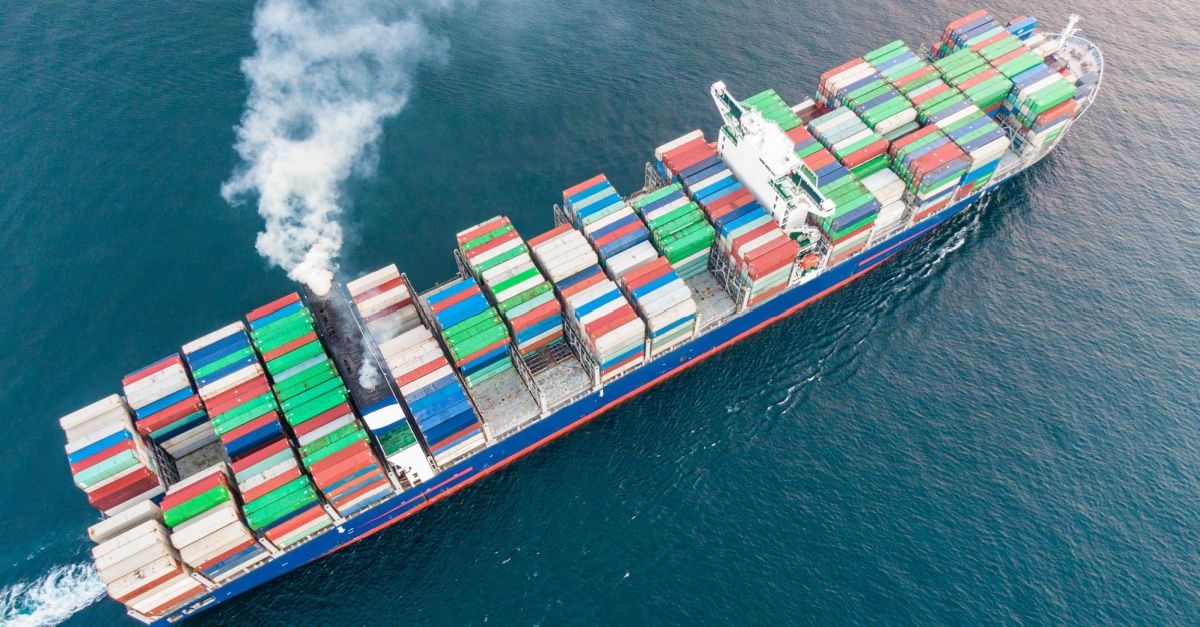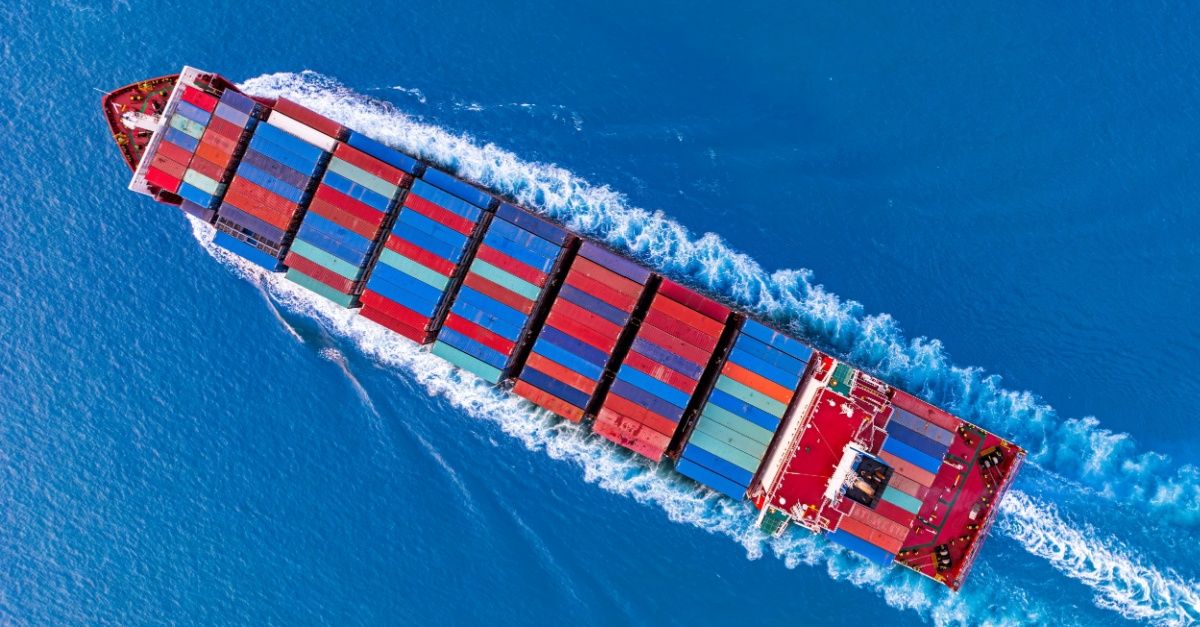Author: Lauriane Tiard-Caillaud
The GLEC Framework v3.2 (2025) introduces groundbreaking updates, including a new air pollutant emissions module and alignment with ISO 14083. Learn how this framework helps businesses achieve sustainable logistics, comply with global standards, and reduce their carbon footprint.
Scope 3 Emissions in Maritime Shipping: 2025 Guide & Best Practices
Scope 3 emissions are the largest and most complex part of most companies’ carbon footprints—especially in maritime shipping, where 90% of global trade moves by sea. With new regulations like the IMO 2023 GHG Strategy and EU CSRD, tracking and reducing these emissions is no...
Transforming Supply Chain Decision-Making with AI and Data
An interview of Graham Parker, Co-founder of ShipAngel, discussing with Paul Canessa, Searoutes VP Customer Success. What is ShipAngel and what does it do?
Graham Parker: ShipAngel is an operating system for shippers that was born at the end of the COVID era. We work with...
Searoutes powers Freya’s Carbon: AI-Agent Transportation Intelligence integrating CO₂ by default
Tetrixx AI partners with Searoutes to transform transportation data, recovering 2-6% of freight costs while tracking carbon emissions with GLEC 3.1 standards.
A History of Certification in Freight Emission Standards
As global supply chains expanded over the past three decades, so did scrutiny over their environmental impact. Today, companies face regulatory, reputational, and operational pressure to both quantify and reduce supply chain emissions.
Client Highlight: Shypple and Searoutes Partner to Bring CO₂ Transparency to Digital Freight Forwarding
Shypple’s partnership with Searoutes demonstrates how fine-tuned, route-level carbon analytics empowers businesses to optimize their operations and meet evolving regulations.
Actionable Supply Chain Decarbonization: Staying Ahead of the Regulatory Curve
Environmental regulations that impact the supply chain are only poised to continue evolving, so shippers stand to benefit from building out dynamic emissions-accountable capabilities rather than reacting to the latest obligations.
Partner Highlight: How Michelin Leverages Searoutes for Carbon-Conscious Tendering
By integrating Searoutes’ CO2 APIs, Michelin refined its procurement decisions, standardized emissions data, and aligned sustainability efforts with financial strategy.
Maritime Shipping EU ETS Requirement: Looking At Year One
The first year yielded promising signs. Initial compliance among major carriers was high, reflecting serious industry engagement. Many companies, especially those already disclosing emissions for ESG purposes, found the MRV framework familiar and manageable.
How the Maritime Industry Can Deliver on Net Zero 2050 Promises
Achieving net zero hinges on replacing fossil fuels with zero-carbon alternatives like green ammonia, hydrogen, and methanol. However, the maritime sector currently faces a major hurdle: the availability of these fuels at scale.
